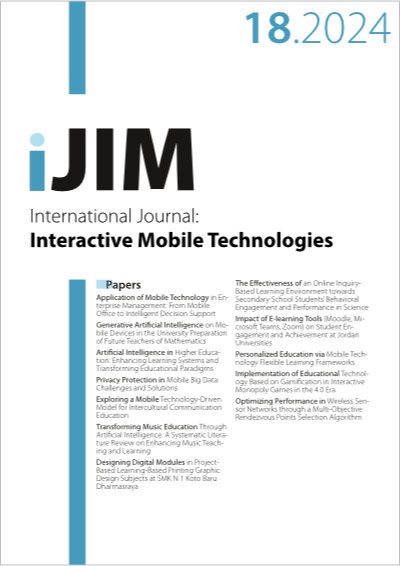Artificial Intelligence in Higher Education: Enhancing Learning Systems and Transforming Educational Paradigms
DOI:
https://doi.org/10.3991/ijim.v18i18.49143Keywords:
Artificial Intelligence; I, Higher Education;, Personalized Learning;, ChatGPT; Generative AIAbstract
This study ventures into the expanding role of artificial intelligence (AI) in higher education and its potential to revolutionize the learning experience. Through a qualitative approach, we investigate how advanced AI-driven educational tools can enhance learning systems through tailored learning experiences, AI-powered adaptive tutoring platforms, immersive digital learning environments, and AI-assisted assessment and feedback systems. From a theoretical perspective, we utilize the constructivist theory of learning as a study framework to explain the role of technology in AI-facilitated personalized and collaborative knowledge construction. This study was executed in three stages. First, we present a brief overview of AI and its recent impact on the education system, including its ethical considerations and implementation hurdles. In the second stage, we propose the potential implications for learning contexts through the constructivist lens, the process of AI-supported cognitive development, and the use of AI tools for optimizing educational processes through AI and transformation in educational paradigms and study work. The findings suggest that institutions can unlock new opportunities for efficiency, accessibility, and personalized learning by adopting AI technology, but they also highlight the need to address ethical considerations and implementation hurdles. This study also contributes to future studies by examining the impact of AI on student outcomes, teacher roles, and institutional practices in education, as well as exploring ethical and equity concerns in AI-driven educational settings.
Downloads
Published
How to Cite
Issue
Section
License
Copyright (c) 2024 Muhammad Imran, Norah Almusharraf, Mohamed Sayed Abdellatif, Milana Yunis Abbasova

This work is licensed under a Creative Commons Attribution 4.0 International License.



